Year 5
Year 5
Spring 1, 2026!
Welcome back! We hope that you all had a fun filled Christmas break and you are ready for lots of learning in Spring!
Start time – 8:40am Pick-up time- 3:15pm
If you have any questions, concerns or worries, please contact us at year5@cpa.dsat.education and we will do our best to respond as soon as we can.
Please ensure that your child brings a labelled water bottle to school each day as well as ensuring that all items of your child's uniform is clearly labelled too.
Click on the link below to access the powerpoint from our recent Meet the teacher meeting.
Year 5 Meet the teacher powerpoint
Maths Calculations Parents' Guidance
English Information- Year 5 and 6
Curriculum
Our historical local study this half term is Mining - What was the importance of mining in Doncaster?

Our theme this half-term will focus on developing our historical knowledge, skills and vocabulary. Throughout our study, we will focus on the jobs that miners would do, including the jobs that children would do and discuss the importance of children working in the mines during the reign of Queen Victoria. We will appreciate that how decisions were made through Parliament and how this impacted on children working in the mines. We will study the effects of mine closures and the strikes on our local communities as well as how mining looks today.
Writing
Our writing this half term will be based on the book The Darkest Dark by Chris Hadfield.
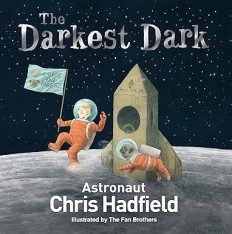
Young Chris is an astronaut. A very busy astronaut. Saving the planet from aliens is much more important than taking baths or going to bed. Because at bedtime the worst sort of alien appears - darkness. But when Chris watches the first televised moon landing, he discovers that there is a dark out in Space that is much darker than he's used to. It's the darkest dark ever, and he realizes that the unknown can be . . . exciting!
The Darkest Dark is the debut picture book by Commander Chris Hadfield, international bestselling author of An Astronaut's Guide to Life on Earth, with spectacular illustrations by illustration team, The Fan Brothers. Inspired by Chris's decision to become an astronaut after watching the Apollo 11 moon landing at age nine, The Darkest Dark is an inspiring story about facing your fears and following your dreams.
We will be note taking and developing initial ideas, drawing on reading and research as well as enhancing meaning through selecting appropriate grammar and vocabulary. We will use consistent and correct tenses to write a formal biography about Chris Hadfield.
Reading
This half term, we will be looking at a variety of non fiction texts.
As part of this unit we will be making predictions about the text from details stated and implied. We will explore the meaning of words and clarifying vocabulary in the text. We will ask and answer our own questions about the text, and make inferences from what we have read.
Maths
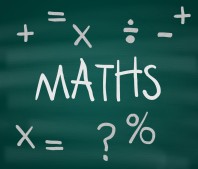
This half term we will be further developing our reasoning skills as well as developing our knowledge of fractions, decimals and angles.
We will also be focusing on knowing and remembering our Key Instant Recall Facts (KIRFs) for Spring 1 - metric conversions. Please click on the links below to continue to support your child securing their multiplication and division facts for to 12 x 12 too.
If you have any questions about these areas of Maths please don’t hesitate to come and speak to us.
R.E.

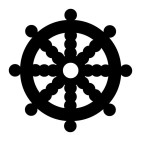
In RE, we will focus on Buddhism to explore the question "How do Buddhists lead a meaningful life?"
We will -
- Define and describe happiness and contentment.
- Define and describe different types of suffering and explore how suffering might be overcome.
- Identify Siddhartha Gautama and explain why and how he searched for the answer to suffering.
- Summarise the story of Prince Siddhartha and explain its importance to Buddhists.
- Relate the Four Noble Truths to our own lives.
- Explain guidelines for living that help to overcome suffering and respond to the Buddhist Precepts as a means of living a good life.
Science - Properties and uses of materials
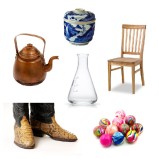
We will continue our science topic of Properties and uses of materials. In this module, we will:
● compare and group together everyday materials on the basis of their properties, including their hardness, [solubility,] transparency, conductivity (electrical and thermal), and response to magnets.
● give reasons, based on evidence from comparative and fair tests, for the particular uses of everyday materials, including metals, wood and plastic.
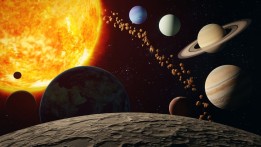 We will also study Earth and Space this half term. In this module, we will:
We will also study Earth and Space this half term. In this module, we will:
● describe the movement of the Earth, and other planets, relative to the Sun in the solar system
● describe the movement of the Moon relative to the Earth
● describe the Sun, Earth and Moon as approximately spherical bodies
● use the idea of the Earth’s rotation to explain day and night and the apparent movement of the Sun across the sky.
Art and Design - Painting
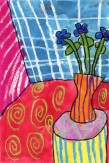
In our learning, we will build on the knowledge and skills in using powder paint effectively. This unit is an introduction to acrylic paint and the techniques associated with it. We will be inspired to create our own artwork focusing on the works of Wassily Kandinsky and Henri Matisse. Finally, we will identify what worked well and areas for improvement.
P.E. - Swimming
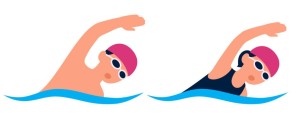
In PE, our focus is Swimming.
In our lessons, we will focus on improving confidence, mastering strokes (front crawl, backstroke, breaststroke), developing breathing, and learning water safety. ,
Our PE day is Wednesday. Please ensure that your child arrives at school at 8:30am on this day, ensuring they bring the correct swimwear, towels and a bag for wet swimwear after the lesson. Goggles can only be worn if parental permission has been given to school. If your child wears earrings, these must be removed and please ensure long hair is tied back away from the face.
P.S.H.E. - Communities - online safety

In our learning about online safety, we will appreciate that social media comes with pressure. We will understand that giving away personal information can lead to both physical and emotional damage as well as recognise some of the signs of online danger.
Computing – Online Safety and Spreadsheets
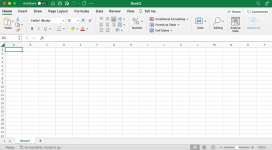
In our Online Safety computing lessons this half term, we will -
-Gain a greater understanding of the impact that sharing digital content can have.
- Review sources of support when using technology and children’s responsibility to one another in their online behaviour.
- Know how to maintain secure passwords.
- Understand the advantages, disadvantages, permissions and purposes of altering an image digitally and the reasons for this.
- Be aware of appropriate and inappropriate text, photographs and videos and the impact of sharing these online.
- Learn about how to reference sources in their work.
- Search the Internet with a consideration for the reliability of the results of sources to check validity and understand the impact of incorrect information.
- Ensure reliability through using different methods of communication.
In our Spreadsheets computing lessons this half term, we will learn how -
• To use formulae within a spreadsheet to convert measurements of length and distance.
• To use a spreadsheet to model a real-life problem.
• To use spreadsheet tools to investigate probability.
• To use the count tool to answer hypotheses about common letters in use.
French - Quel temps fait - il? (What is the weather like?)
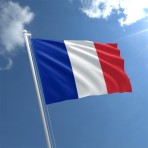
In this unit, we will learn to ask what the weather is like and respond in French, recognise and recall the conjunctions ‘et’ (and) & ‘mais’ (but), recognise and recall the 4 core compass points in French, recognise and recall numbers 1-31 in French to express the temperature, recognise and recall the 7 days of the week and the time of day in French as well as present a weather forecast in French.
Music

Our musical theme is Sing and play in different styles. Singing and playing in different styles with different grooves is part of being in a band or an ensemble. We learn about music from all around the world, too. In music, ‘tempo’ refers to the speed of the beat – or how fast or slow the music sounds. Sometimes tempos stay the same throughout a song, and sometimes they change. Singing and listening are at the heart of each lesson. Play, improvise and compose using a selection of these notes: C, D, E♭, E, F, F♯, G, A♭, A, B♭, B.
TTRockstars and Reflex– Every day 10 minutes
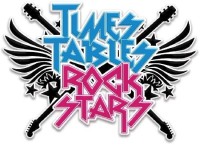
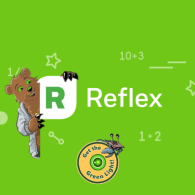
Adaptive and individualized, Reflex is the most effective system for mastering basic maths facts in addition, subtraction, multiplication, and division. Full of games that children love, Reflex takes children at every level and helps them quickly gain maths fact automaticity and confidence.
Times Tables Rock Stars (TTRS) is a program designed to help children learn and memorise multiplication and division facts. It uses a gamified approach, incorporating a rock and roll theme to make practice fun and engaging. In order to get the best out of TTRS children should regularly play for short bursts of time over the week.
If you have misplaced your log in details or are having trouble accessing the websites, please email me to let us know.
READING – Every day 10 minutes
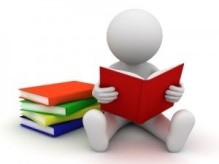
Please continue to enjoy your reading each day. Reading is fun and a great way to spend time together with your family, as well as developing our imaginations. Encourage your child to talk about what they have read and ask them a question or two about the book. This will help consolidate their comprehension work in school. Adults please remember to record what your child reads at home in their reading record. We will count all entries in the reading diaries weekly and award golden tickets to those who have read 20 times or more in a month.
Our book change day is Thursday.
Homework
Maths- Given out every Thursday to be handed in by the following Thursday.
If you have any questions, worries or concerns please contact me using the class email: year5@cpa.dsat.education
Thank you.
Mrs Milnes & Mrs Wilkinson
